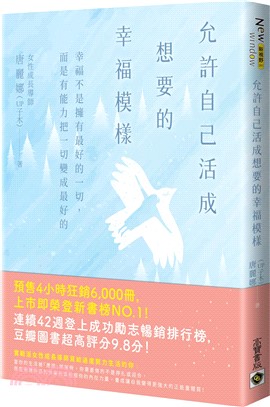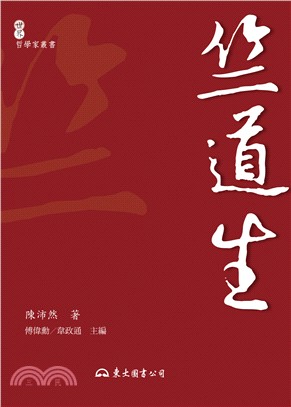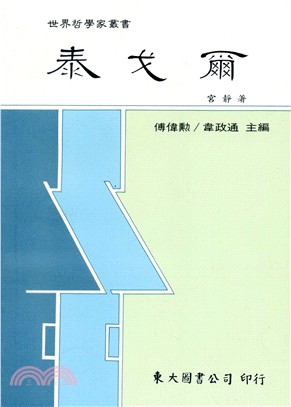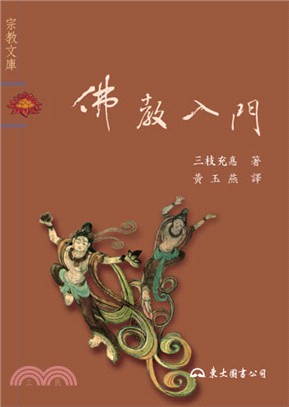相關商品
商品簡介
作者簡介
商品簡介
Human, All Too Human (1878) is often considered the start of Friedrich Nietzsche’s mature period. A complex work that explores many themes to which Nietzsche later returned, it marks a significant departure from his previous thinking. Here Nietzsche breaks with his early allegiance to Schopenhauer and Wagner, and establishes the overall framework of his later philosophy. In contrast to his previous disdain for science, now Nietzsche views science as key to undercutting traditional metaphysics. This he sees as a crucial step in the emergence of free spirits who will be the avant-garde of culture.
In summing up the crucial change of perspective expressed in Human, All Too Human, Nietzsche used the following words in his later work Ecce Homo:
Human, All Too Human is a memorial of a crisis…. [W]ith this book I liberated myself from that in my nature which did not belong to me. Idealism does not belong to me…realities were altogether lacking in my knowledge, and the ‘idealities’ were worth damn all! A downright burning thirst seized hold of me: thenceforward I pursued in fact nothing other than physiology, medicine, and natural science.
This is an essential work for anyone who wishes to understand Nietzsche’s incisive critique of Western culture and values.
In summing up the crucial change of perspective expressed in Human, All Too Human, Nietzsche used the following words in his later work Ecce Homo:
Human, All Too Human is a memorial of a crisis…. [W]ith this book I liberated myself from that in my nature which did not belong to me. Idealism does not belong to me…realities were altogether lacking in my knowledge, and the ‘idealities’ were worth damn all! A downright burning thirst seized hold of me: thenceforward I pursued in fact nothing other than physiology, medicine, and natural science.
This is an essential work for anyone who wishes to understand Nietzsche’s incisive critique of Western culture and values.
作者簡介
FRIEDRICH NIETZSCHE was born on October 15, 1844, to the family of a Protestant minister in the town of Rocken, which is located in the Saxony-Anhalt region of what is now eastern Germany. After studing philosophy in Bonn and Leipzig, Nietzsche became a professor at the University of Basel, Switzerland, in 1869. Later he opted to become a Swiss citizen.
While working in Switzerland, he published his first book, a literary work titled The Birth of Tragedy from the Spirit of Music. This volume was produced during Nietzsche’s friendship with the composer Richard Wagner, though only a few years would pass before the two would part ways as a result of personal and intellectual differences.
In failing health and unable to devote himself full time to both teaching and independent writing, Nietzsche chose to resign his university position. During the next decade he wrote such works as Thus Spake Zarathustra (most of which appeared in 1883), Beyond Good and Evil (1886), Genealogy of Morals?(1887), Twilight of the Gods (1888), Antichrist (1888), and Ecce Homo (1888).
His collapse while in Turin, Italy, in early 1899, would prove the beginning of a long and arduous struggle with ill health and insanity. Nietzsche died in the care of his family in Weimar on August 25, 1900, just a few weeks prior to his fifty-sixth birthday.
Nietzsche advocated the view that all humankind should reject otherworldliness and instead rely on its own creative potential to discover values that best serve the social good. His infamous “superman” or “overman” is one who has recognized how to channel individual passions in the direction of creative outlets. In rejecting the morality of the masses, Nietzsche celebrates the pursuit of classical virtues.
While working in Switzerland, he published his first book, a literary work titled The Birth of Tragedy from the Spirit of Music. This volume was produced during Nietzsche’s friendship with the composer Richard Wagner, though only a few years would pass before the two would part ways as a result of personal and intellectual differences.
In failing health and unable to devote himself full time to both teaching and independent writing, Nietzsche chose to resign his university position. During the next decade he wrote such works as Thus Spake Zarathustra (most of which appeared in 1883), Beyond Good and Evil (1886), Genealogy of Morals?(1887), Twilight of the Gods (1888), Antichrist (1888), and Ecce Homo (1888).
His collapse while in Turin, Italy, in early 1899, would prove the beginning of a long and arduous struggle with ill health and insanity. Nietzsche died in the care of his family in Weimar on August 25, 1900, just a few weeks prior to his fifty-sixth birthday.
Nietzsche advocated the view that all humankind should reject otherworldliness and instead rely on its own creative potential to discover values that best serve the social good. His infamous “superman” or “overman” is one who has recognized how to channel individual passions in the direction of creative outlets. In rejecting the morality of the masses, Nietzsche celebrates the pursuit of classical virtues.
主題書展
更多
主題書展
更多書展本週66折
您曾經瀏覽過的商品
購物須知
外文書商品之書封,為出版社提供之樣本。實際出貨商品,以出版社所提供之現有版本為主。部份書籍,因出版社供應狀況特殊,匯率將依實際狀況做調整。
無庫存之商品,在您完成訂單程序之後,將以空運的方式為你下單調貨。為了縮短等待的時間,建議您將外文書與其他商品分開下單,以獲得最快的取貨速度,平均調貨時間為1~2個月。
為了保護您的權益,「三民網路書店」提供會員七日商品鑑賞期(收到商品為起始日)。
若要辦理退貨,請在商品鑑賞期內寄回,且商品必須是全新狀態與完整包裝(商品、附件、發票、隨貨贈品等)否則恕不接受退貨。
























